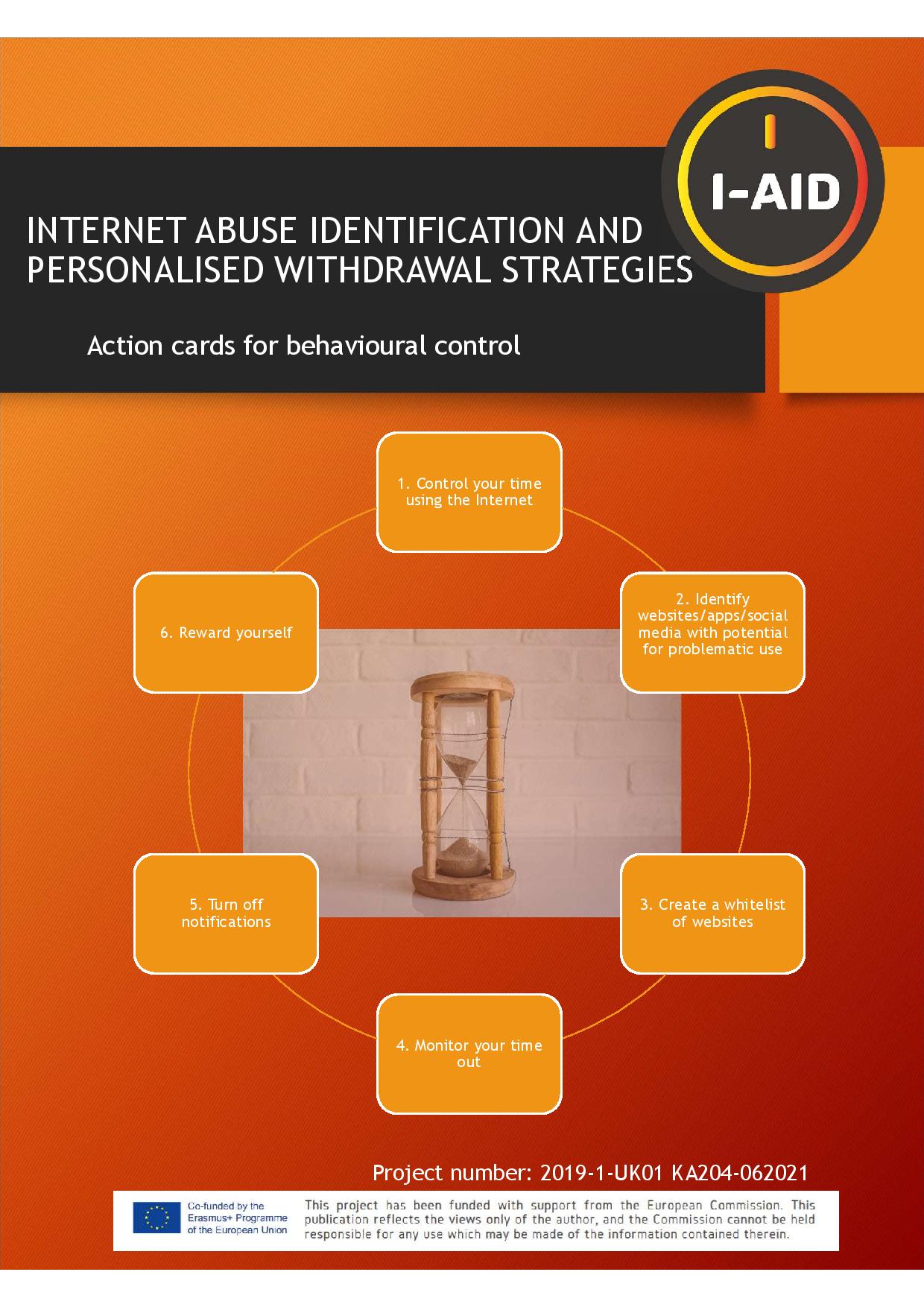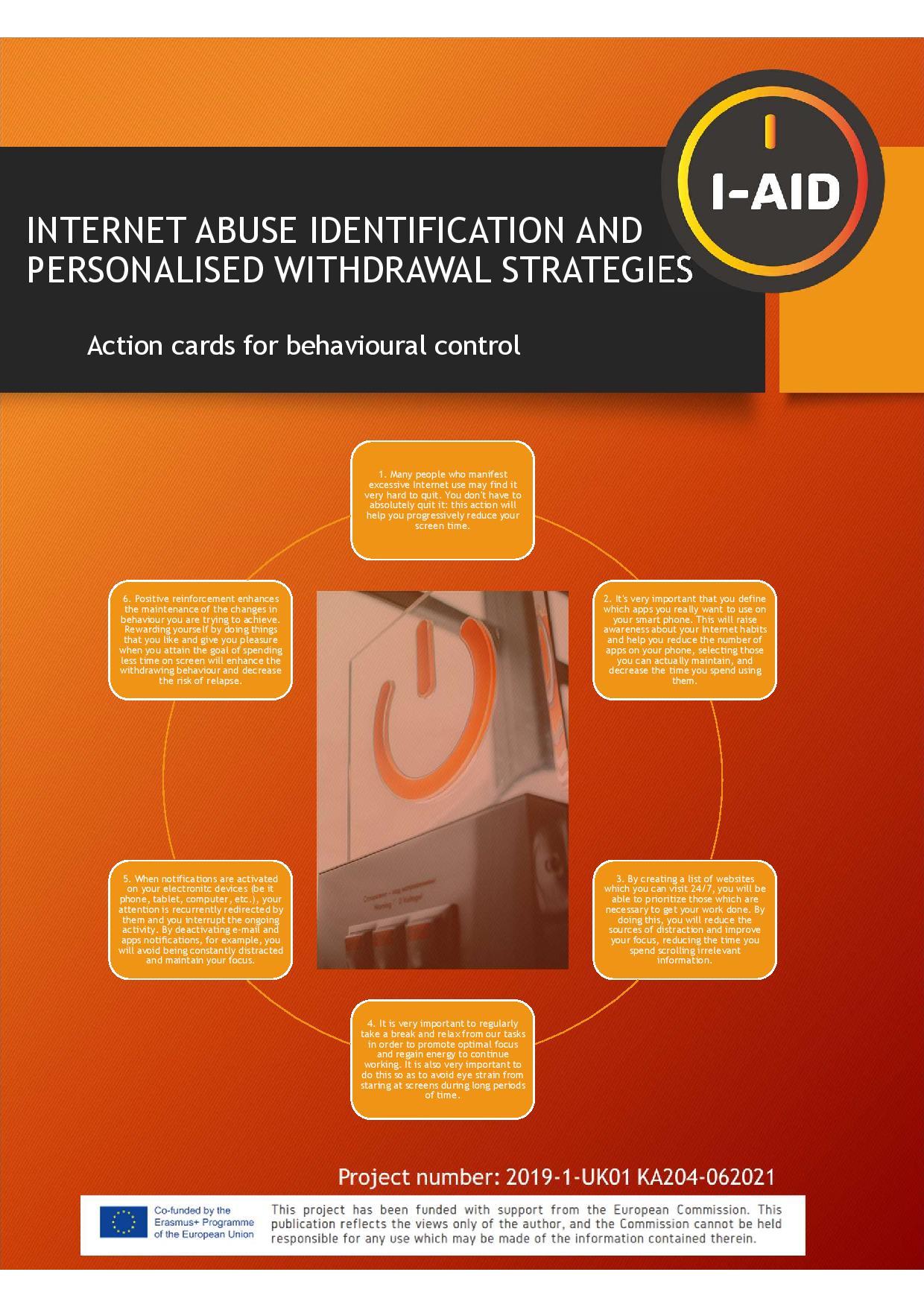Behaviour Control
Short introduction to the Module
Monitoring your behaviour while using the Internet will allow you to become aware of the elements that are potentially problematic, and therefore provide opportunities for moderating these behaviours in favour of your well-being. This module will help you follow a straightforward course of simple actions and strategies that, when successfully completed, can help you succeed in your withdrawal plan.
Summary of the actions
In the actions related to behavioural control, you learned to …
- progressively reduce your screen/online time, by being aware of the periods you spend on it, through self-regulation strategies;
- define which apps and websites you really want to use on your smartphone by identifying those with potential for problematic use;
- explore apps and tools that can help you manage the use of specific websites/apps/social media, using these tools to block distracting websites, games and applications, allowing you to boost your productivity, discipline yourself, and retrieve free time, which you can then use to engage in rewarding activities outside the screens, at your own pace;
- regularly take a break and relax from your tasks in order to promote optimal focus and regain energy to continue working;
- deactivate e-mail and app notifications to avoid being constantly distracted and maintaining your focus;
- reward yourself by doing things that you like and give you pleasure, because positive reinforcement enhances the maintenance of the changes in behaviour you are trying to achieve.
Extra tips & information
If you are a parent in need of scientific and/or pragmatic information about how to help your children cope with Internet use, you may want to explore more about parental control. There are a lot of strategies and solutions to help guide you, and you can find them in our extra resources.
Another tip to help you moderate your Internet use is to plan your day. Before you sit in front of your digital device, take a moment to organise your day. Looking carefully at your schedule you can become aware of how much time you need online. This will help you keep track of time and align your tasks, but most of all, keep you aware of the online/offline overall time.
Additionally, you can challenge yourself to commit to a digital detox of more than one day, by removing distractions (e.g. deactivating all your notifications with the exception of those related to emergencies), avoiding glamourising busyness, asking yourself the reason why you are picking up your phone, dividing your day into thirds and allocating each third to a purpose (8 hours to sleep, 8 hours to work and 8 hours free), and fasting from electronics. These strategies will help you manage your online time. You can learn more about this in the extra resources.
Extra resources
Learn five ways that can support you undertaking a digital detox
Infographic


